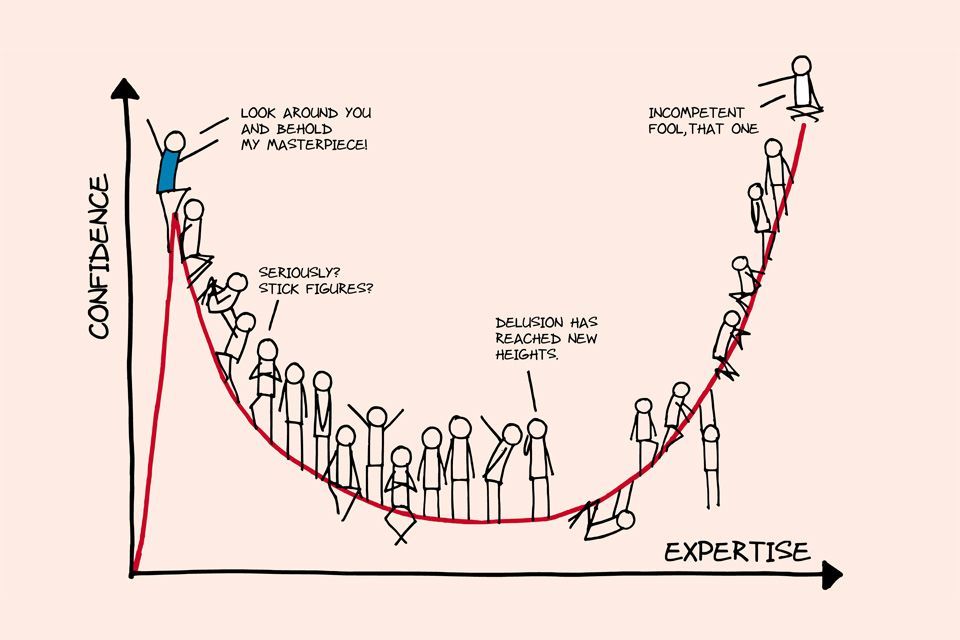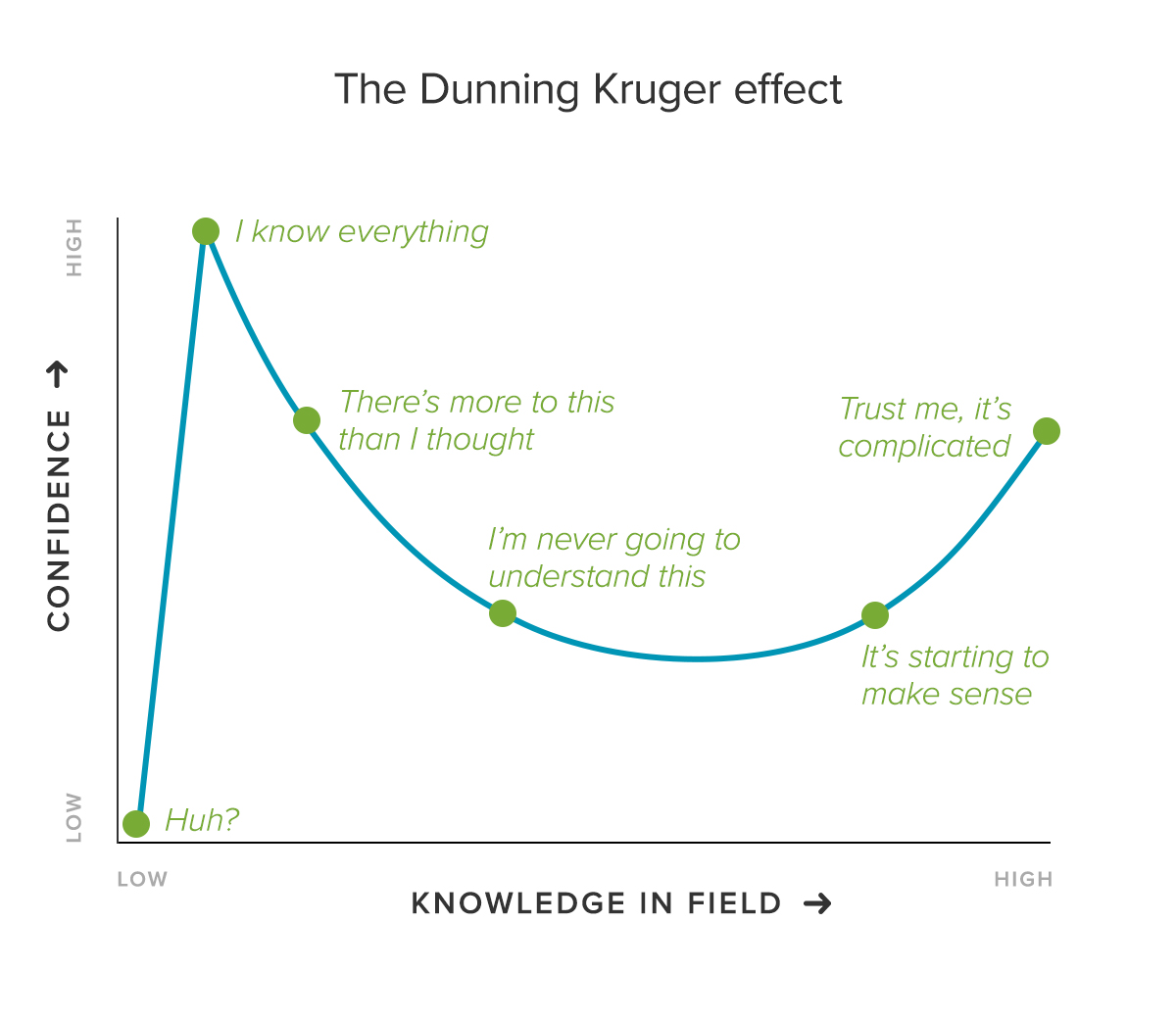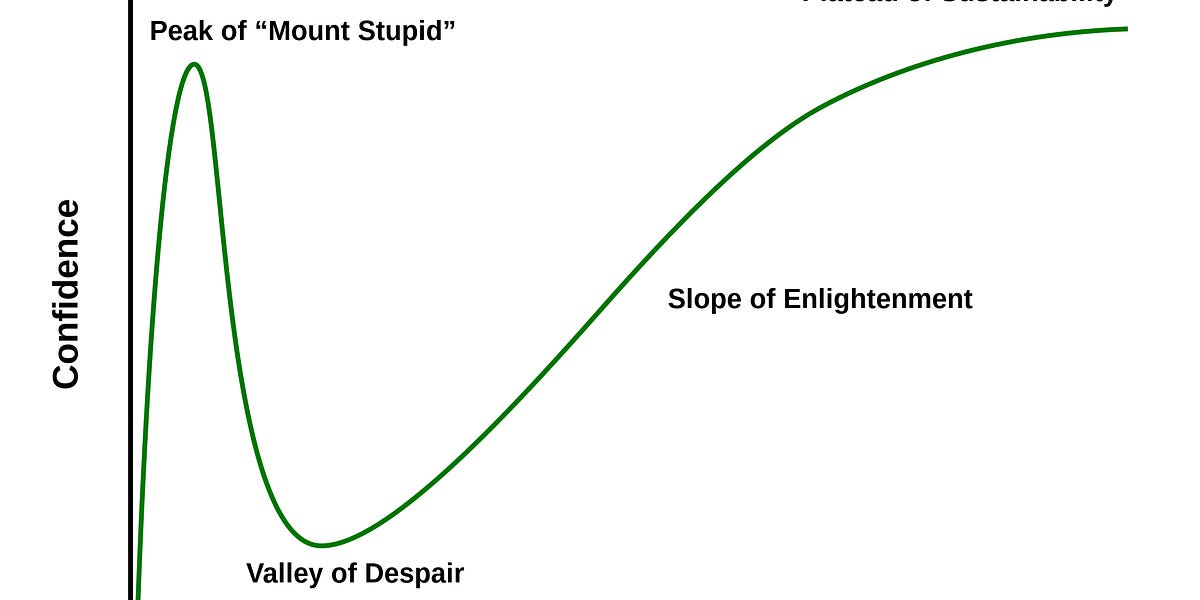Explaining The Dunning Kruger Effect William Meller

The Dunning Kruger Effect How Does It Affect Us And Does It Even The dunning–kruger effect is the cognitive bias whereby people with low ability at a task overestimate their ability or believe that they are smarter than they really are. The central point of krueger and mueller’s (2002) critique is that a regression artifact, coupled with a general bta effect, can explain the results of kruger and dunning (1999).

Dunning Kruger Effect An in depth guide to the dunning kruger effect. discover why unskilled people are often overconfident, the psychology behind this cognitive bias, and how to spot it to improve your self awareness and skills. The dunning kruger effect, at its heart, is a cognitive bias, a systematic pattern of deviation from norm or rationality in judgment. it explains why individuals with low competence in a particular area often fail to recognize their own lack of skill. The dunning kruger effect is a type of cognitive bias in which people believe that they are smarter and more capable than they really are. essentially, low ability people do not possess the skills needed to recognize their own incompetence. In 2011, david dunning published a chapter in advances in experimental social psychology which provides a thorough review of the dunning kruger effect, including its definition, alternative accounts of the dunning kruger effect, and potential future directions for the literature.

Dunning Kruger Effect You Re Not As Smart As You Think Stockspot The dunning kruger effect is a type of cognitive bias in which people believe that they are smarter and more capable than they really are. essentially, low ability people do not possess the skills needed to recognize their own incompetence. In 2011, david dunning published a chapter in advances in experimental social psychology which provides a thorough review of the dunning kruger effect, including its definition, alternative accounts of the dunning kruger effect, and potential future directions for the literature. What is the dunning kruger effect, and how to overcome it? written by maarten bosten on 30 09 2020. overestimation happens constantly and oftentimes we are unaware of this bias. luckily for us and everyone around us, it is possible to overcome this phenomenon called the dunning kruger effect. Explore the dunning kruger effect, its implications, and real life examples. learn how to recognize and counteract this cognitive bias. Take a deep dive into the dunning kruger effect, uncover its origin, discover its impact on society, and read about the many ways it affects decision making in healthcare and life sciences. The dunning–kruger effect is the cognitive bias whereby people with low ability at a task overestimate their ability or believe that they are smarter than they really are.

The Dunning Kruger Effect By Martin B Justesen What is the dunning kruger effect, and how to overcome it? written by maarten bosten on 30 09 2020. overestimation happens constantly and oftentimes we are unaware of this bias. luckily for us and everyone around us, it is possible to overcome this phenomenon called the dunning kruger effect. Explore the dunning kruger effect, its implications, and real life examples. learn how to recognize and counteract this cognitive bias. Take a deep dive into the dunning kruger effect, uncover its origin, discover its impact on society, and read about the many ways it affects decision making in healthcare and life sciences. The dunning–kruger effect is the cognitive bias whereby people with low ability at a task overestimate their ability or believe that they are smarter than they really are.

Dunning Kruger Effect Recognising Your Knowledge Gap Take a deep dive into the dunning kruger effect, uncover its origin, discover its impact on society, and read about the many ways it affects decision making in healthcare and life sciences. The dunning–kruger effect is the cognitive bias whereby people with low ability at a task overestimate their ability or believe that they are smarter than they really are.
Comments are closed.